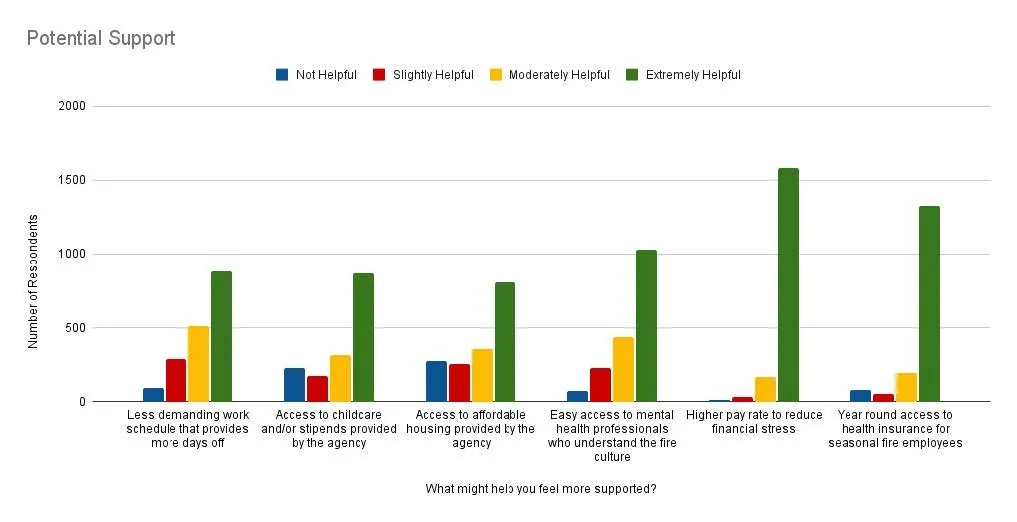Partner & Spouse Survey
The Wildland Firefighter Partner/Spouse Perspective Survey was developed to measure the impacts a career as a federal Wildland Firefighter (WFF) has on both firefighters and their families. With increased awareness & legislative reform effective support can be developed to match the demands of our fire seasons.
Impacts of the Profession as Recognized by Partners/Spouses
Stressors
Wildland Firefighter: WFF
Partner/spouse of WFF: Respondent
60.2% report WFF's have been impacted by an incident at work that resulted in mental health challenges.
59.9% of respondents feel they are secondary to the commitments of their partner's job while 43.4% feel they're left to operate without a partner for 7+ months per year.
“The most difficult part...we always came second...fire always came first.”
— Respondent
Current Stress Responses
Respondent
(reported often/regularly)
78.1% feel stress due to WFF's absence
69.1% feel concerned about health of WFF
73.1% worry about possibility of tragic accident on fireline impacting them
11.5% feel confident if something were to happen to WFF while on duty, they'll be taken care of by agency
49.3% say maybe/yes they've considered separating from WFF due to strain on relationship from demands of job
WFF
(reported by respondents as behaviors reported often/regularly in WFF during fire season while off duty)
56.6% answer calls/texts related to work
55.4% spend time on a screen
51.3% express anger/frustration about work
46.1% experience inadequate/poor quality sleep
46.4% spend quality time with family/friends
44.9% retreat, rest, recover
37.8% exhibit a sense of calm and ease while at home often/regularly
“If a fire doesn't kill my husband, the stress & anxiety will.”
— Respondent
What’s Missing?
“The support & resources aren't there..."
—Respondent
More details can be found here:
What Respondents are Saying
"This season is the fastest I've seen him burnout mentally & emotionally."
— Respondent
"My biggest challenge, in a household where we both fight fire, is that I may be expected to give up my career to carry and then raise a child."
— Respondent
"The mental health issues seem to have compounded over time with the nature of the job but also the loss of friends and co-workers to fire related deaths and suicide."
— Respondent
"We've given too much, for too long, for too little."
— Respondent


